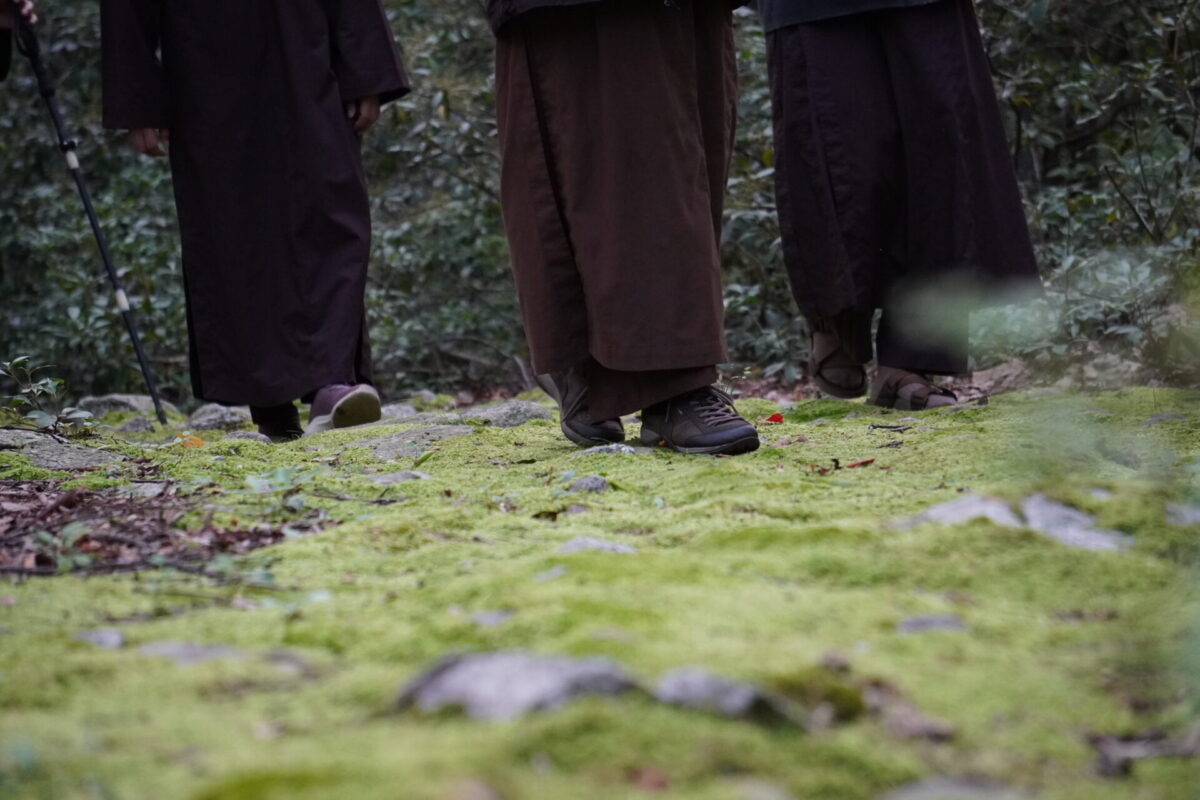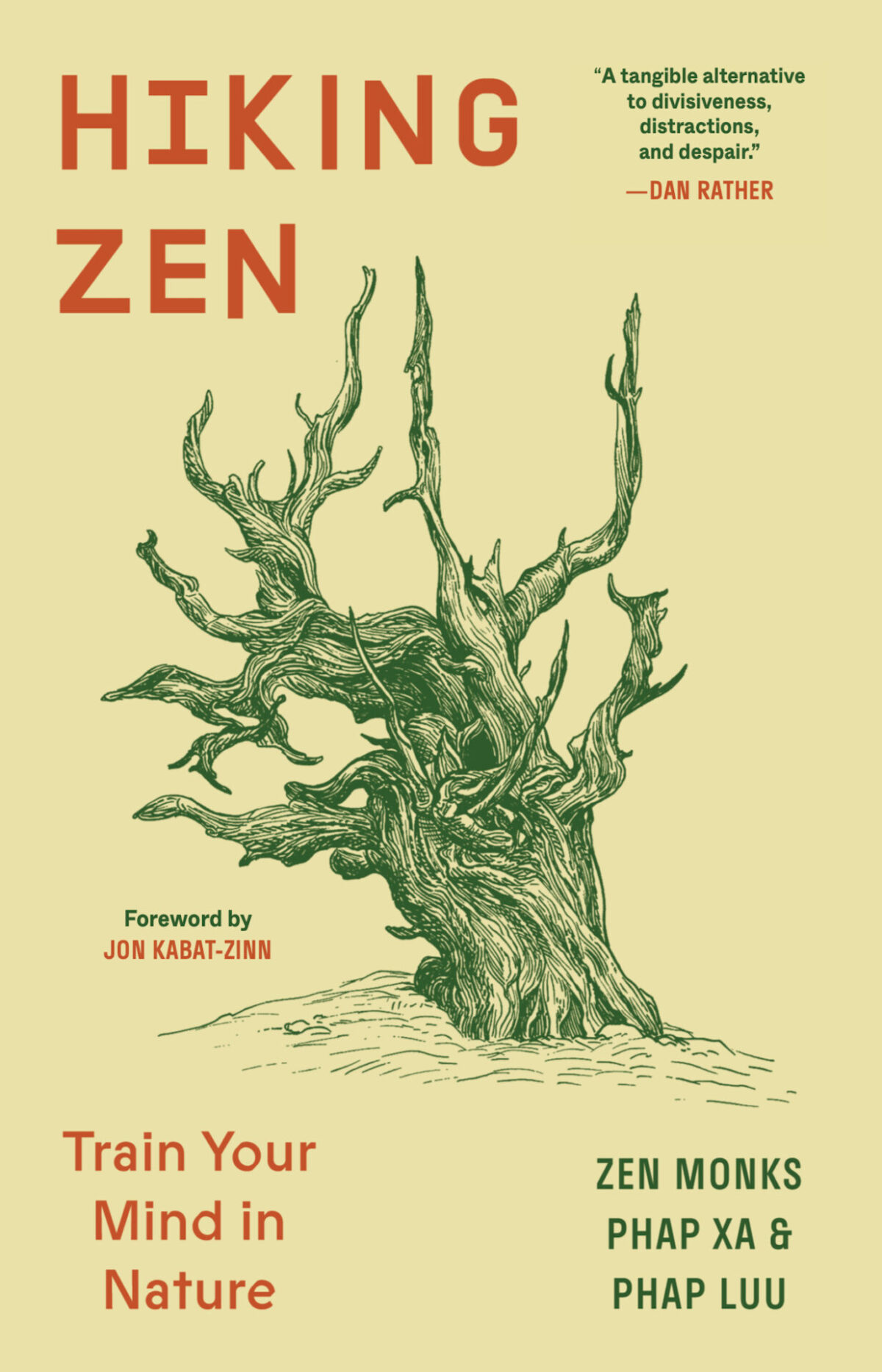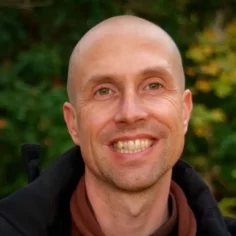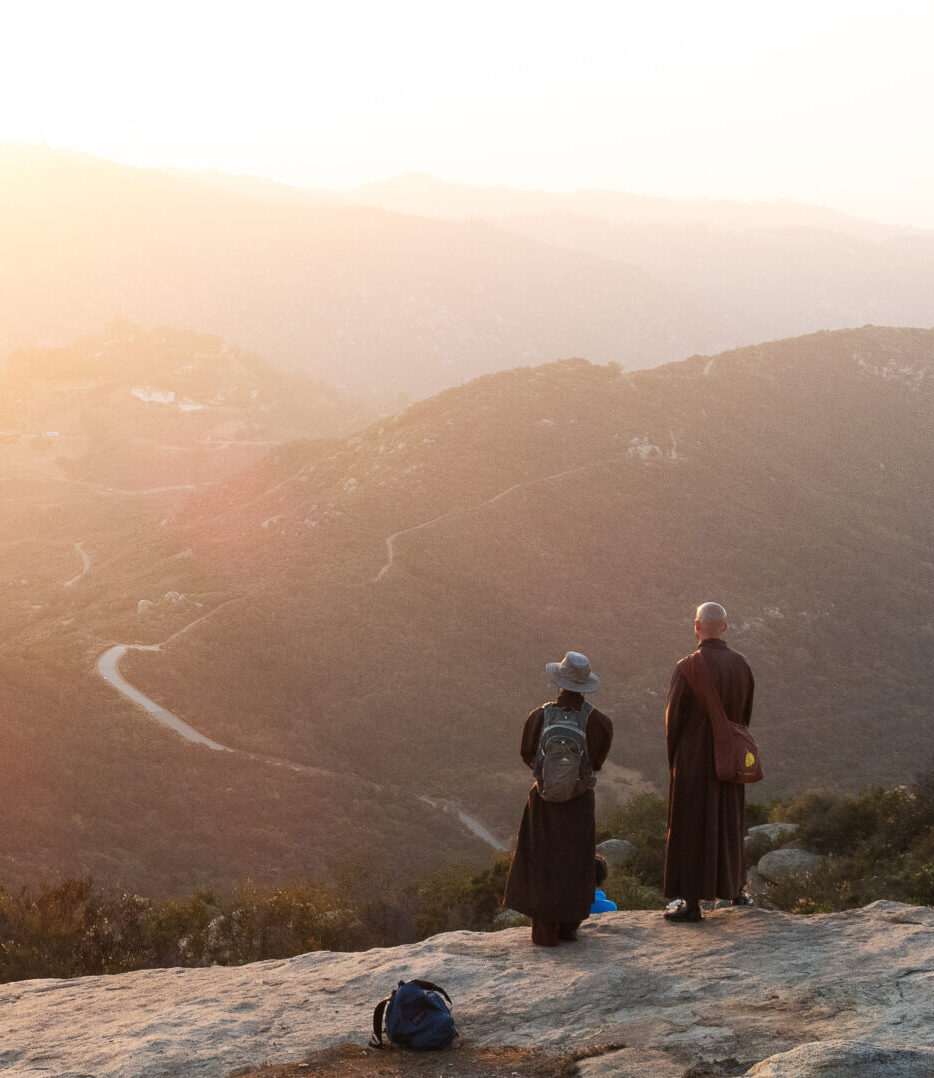Brother Pháp Xả shares how his aspiration to end suffering is a continuation of his family’s work to save onderduikers, people hiding from the Nazi German army, in World War II.
I grew up on a dairy farm in the Eastern Netherlands, not far from the German border. My father had inherited the farm from his father—I was part of the sixth generation of our family to live there. As far back as I can remember,
Brother Pháp Xả shares how his aspiration to end suffering is a continuation of his family’s work to save onderduikers, people hiding from the Nazi German army, in World War II.
I grew up on a dairy farm in the Eastern Netherlands, not far from the German border. My father had inherited the farm from his father—I was part of the sixth generation of our family to live there. As far back as I can remember, my parents hoped I would continue to run the farm, since I did show some interest and had no idea what I wanted to study. My elder brother, they knew, had no interest, and my two sisters studied sociology and psychology. Throughout my childhood, my mother often said what a great pity it would be if none of her children took on the farm she and my father had worked so hard to keep going.
Instead of developing an interest in running the farm, though, I decided to pursue a master’s degree in mathematics in a city called Enschede. When my parents least expected it, though, my elder sister, Alma, became interested in the farm. She and her partner, both social workers, decided to study agriculture to prepare themselves for work on the farm. In 1999, they moved in.
I continue their aspiration in my own life—though in a different form as a Zen monk—offering people a place of refuge and dedicating myself to transform suffering.
I had heard stories about my paternal grandparents, but they both died before I was born. My grandfather was shot during the World War II Nazi occupation of the Netherlands from 1940-45, and my grandmother passed away soon after my parents got married.
During the occupation, our farm was a refuge for onderduikers—people hiding from the Nazi German army. Onderduikers literally means “under diver” and describes people who went into hiding, especially to escape persecution or forced labor by the Nazi regime, during World War II. During this time, I’d been told, families and some single men stayed on our farm—among them a Nazi deserter.
Times were dangerous, and my grandparents were anxious about our family’s safety. Though I never heard much of this from my father, a young man named Simon who stayed at the farm later wrote a detailed narrative about his war experiences. From his story, I learned that one morning, a Dutch onderduiker decided to try his luck and move on. He disguised himself in a Nazi Wehrmacht uniform, grabbed a rifle and some hand grenades, and headed down the road. Later that day, he was arrested. Right away his mother rushed to the farm and warned all the men to flee; she felt sure her son would talk under the pressure of interrogation. Simon advised my grandfather to hide—any men present when the Gestapo arrived would surely be detained. My grandfather, standing out on the field beside the farm when he heard the news, followed his first thought: to return to the house to protect his family. His noble action had dire consequences, though. On Christmas Eve, 1944, he was arrested.
A few months later, on the night of March 6, 1945, some members of the Dutch resistance disguised themselves in German uniforms to ambush a Nazi truck. The BMW motorcar they ended up stopping, though, was driving the highest German SS-officer in the Netherlands, Hanns Rauters. The resistance fighters shot all the Germans in the motorcar, but Rauters feigned death and survived. As a reprisal for this attack, the occupying German forces executed 117 political prisoners in Eerbeek on the “Woeste Hoeve” on March 8, 1945. My grandfather was one of these prisoners. He was forty-eight at the time, my father only eleven.
Saying “These grandparents have passed away” is part of the truth. Yet Zen has shown me it is also true that my grandparents are still alive in me, in every cell of my body—their DNA, their experiences, their joy, and their suffering continue in me.
In his narrative account of the war, Simon described my grandparents as “such good people, who never thought of themselves and were always ready to help others.”* When I read this sentence, it made me so happy. Despite my lack of interest in taking over what had been their farm, I saw that my grandparents and I had remarkably similar aspirations. In vastly different circumstances, we turned and turn toward helping others. I continue their aspiration in my own life—though in a different form as a Zen monk—offering people a place of refuge and dedicating myself to transform suffering.
Contemplating the lives and aspirations of my ancestors has been a core part of my meditation practice. My paternal grandmother passed away in 1967, seven years before I was born, so, until I discovered Simon’s writing, I only knew the bits of their story passed down by my father.
Our long hiking retreat on the Appalachian Trail, from the Shawangunks in upstate New York to Washington, D.C., had begun at Blue Cliff Monastery. Setting foot on the grounds there when I arrived brought back many memories. In August 2007, I traveled with Thầy to the US on a one-way ticket. As a monk, I am committed to doing what is determined to be best for the community—I have let go of deciding for myself, based purely on my own interests, what I want to do. In this case, that meant I would be staying on as a resident at Blue Cliff after the mindfulness retreat Thầy had organized there.
The monastery is ensconced in a forest of hemlock fir and beech, with wild rhododendrons clustered in small, scattered bogs. The monks and nuns discovered deer paths crisscrossing the landscape when they moved in and quickly set to widening and establishing them, using mindful steps and minimal clearing, as walking meditation trails. Once I settled in at Blue Cliff, I came to enjoy walking the “loop”—a four-mile walk around the neighborhood. At first, I walked it often, sometimes jogging it. I enjoyed walking it with other brothers and sisters, but if no one was available, I went by myself. I also recall many hours spent in the forest with a chainsaw, searching for downed wood to cut up and leave to cure so we could later burn it to heat the monks’ residence in winter.

These happy memories of the time I spent outside at Blue Cliff build on what I loved most as a child. It has always been a joy for me to be active outside. Growing up on a farm, I was accustomed to outdoor work, to breathing fresh air charged with the scent of turned soil. I often worked on the tractor, sometimes spending the whole day riding around mowing or removing cut grass to compress and save for the winter to feed the milk cows.
Since everything was so far away from our farm—school, friends, soccer practice—I often traveled from place to place on my bike. High school in the city of Arnhem, about ten miles away, meant one hour of riding on the flat Dutch bicycle paths that flanked the main road. After my sister Alma took over the farm, my father, newly released from his daily rounds caring for the cows, discovered a hobby he would keep well into his old age: hiking. Wonderfully, we share this joy of walking; even as a monk, I was able to join my father in walking some sections of the famous Pieterpad together.
The day I returned to Blue Cliff for our mindful hiking retreat (I hadn’t lived there for eight years by that time), I took a walk in the forest by myself. It was early morning, and I noticed the imperfection of my memories. The shape and length of the paths I had traversed so often in my mind didn’t match with what was on the ground beneath me. The exact location and shape of Moonlake was so different from how I had remembered it.
Walking on the land again, I visualized my long-dead grandfather and the two grandmothers I had never known walking alongside me. The little bits I knew of them and the pictures I had seen surfaced in my mind, and I smiled to them and saw them smiling back at me. We walked together. Saying “These grandparents have passed away” is part of the truth. Yet Zen has shown me it is also true that my grandparents are still alive in me, in every cell of my body—their DNA, their experiences, their joy, and their suffering continue in me. This is also true. There is an everyday reality, and there is a reality that transcends the boundaries of birth and death. It does not have to be one or the other.
Walking with my grandparents in the forest of Blue Cliff, I was aware I was also walking for them. My grandparents, like everyone who has ever lived, had their difficulties and their suffering; as I walk with them in mindfulness and care, their lives, joys, and hardships have a continuation in me. My practice is to cultivate happiness and transform my suffering, which is connected to, not different from, their suffering.
In Zen, it is thought that becoming a monk or a nun and having the chance to deeply transform the roots of suffering is a great fortune, a fortune you receive thanks to the work of your ancestors. As monks, we are reminded that we will never be able to repay this gratitude we owe. In fact, the Buddhist sutras say you would not be able to repay this debt of ancestral gratitude even if you carried your father on one shoulder and your mother on the other for the whole of your life!
Some may think to be happy or to cultivate happiness is selfish when there is so much suffering in the world. But to me it is clear: If you are not happy, how can you contribute to the happiness of others? Thầy liked to use the analogy of swimming: only if you know how to swim can you save yourself and others from drowning. Likewise, only if you know how to transform your own suffering—which includes the suffering of your ancestors—into happiness and peace can you help others not to drown in their own misery. This insight inspires me to be happy for myself, my parents, my grandparents, and the world.
*The details that follow are found in Simon Plugge’s narrative, Recollections, which was given to my father by Simon Plugge. It is not yet publicly available.

This is an excerpt from Hiking Zen: Train Your Mind in Nature by Brother Pháp Lưu and Brother Pháp Xả, published by Parallax Press and available for pre-order from your favorite bookstore.


